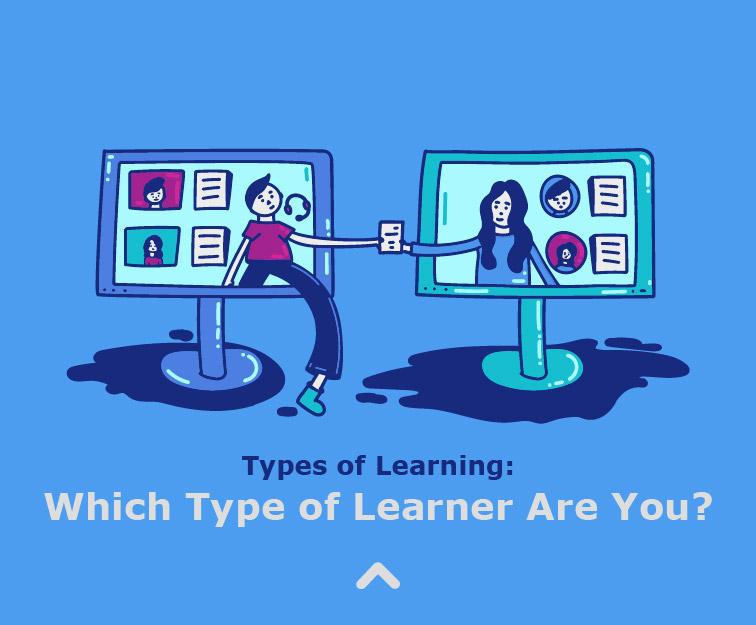Online Learning Vs Offline Learning: Which is Better?
Tips and Advice
5 mins read
Share

Updated at: 25 November, 2025
Published at: 06 May, 2022
By Amira Adel
Online Learning Vs Offline Learning: Which is Better?
Tips and Advice
5 mins read

Updated at: 25 November, 2025
Published at: 06 May, 2022
By Amira Adel
Share
People all over the world, including students, have been forced to adjust their habits as a result of the Covid-19 pandemic. We are witnessing the rise of e-learning as a result of advanced technology. To conduct classes, several educational institutes have switched from physical classrooms to virtual classrooms. Virtual technology was rapidly growing and being adopted even before the Covid-19 issue hit the world. Students were learning through a variety of online classes before the pandemic, but there has been a considerable increase in demand for virtual learning since then.
Both online and offline education have their own set of benefits and drawbacks. This blog will tackle one of the most hotly disputed topics these days: Online Learning Vs Offline Learning: Which is Better?
Online Learning:
The way education is delivered permanently changed as a result of technological innovations. In reality, online education has evolved into a flexible teaching technique in which students may easily access study materials from the comfort of their own homes. Furthermore, online education gives a fantastic option for students who are unable to enrol in traditional classes, as well as allowing them to study at their own pace.
Students can learn self-discipline and time management skills through online education, which also gives them access to an endless supply of educational resources. Students can easily determine their own learning speed if they have the correct equipment and access to a stable internet connection.
Check some of the top research resources for students.
Offline Learning:
Offline education is the traditional counterpart of online education and the original mode of learning that allows students to engage with their peers and teachers in a face-to-face setting on a regular basis. Even if online education is anticipated to be the future of education, it will never be able to replace the whole nature of traditional education. Technical issues have little impact on offline education, and it provides a wonderful opportunity for students to build and stick to a fixed schedule.
Offline classes encourage students to collaborate on projects with other students and help them learn new skills. Students become more introverted as a result of online education since they only communicate with other students through online chatting rather than face-to-face interaction.
Additionally, offline education allows teachers to observe their students' responses and behaviour and respond as needed. As a result, no matter how advanced online education becomes, offline education will continue to play an important role in students' growth.

Online Vs Offline:
Teachers can simply educate their students in virtual classrooms when it comes to online classes. As long as they have access to an internet connection, students can quickly access learning resources from wherever. Teachers can use a variety of online learning materials, such as films, audios, animations, virtual whiteboards, virtual conference rooms, and live chats with students, in their online classes.
Offline classes, on the other hand, provide students with a hands-on learning environment within the boundaries of a real classroom. It allows students to communicate directly with their lecturers as well as actively participate in live discussions and debates. Students can also engage in recreational activities such as painting and physical education, which help them develop their mental and physical abilities.
While comparing online education vs offline education, there are some things to consider when choosing which is better, such as:
Accessibility
One of the most pleasant aspects of online classes is that they may be accessed from anywhere in the world. Students can access study materials from the comfort of their own homes by simply logging in from anywhere. Apps like Zoom and Microsoft Team have made it possible for students to attend lectures from anywhere. Furthermore, students do not have to pay for transportation. As a result, online classes offer the distinct benefit of location flexibility.
Offline classes, on the other hand, require students to travel to their educational institution's location. Teaching usually takes place in a fixed location, such as a lecture hall or a physical classroom. Certain students may have to travel a long distance to go to their educational institution, which can be inconvenient. Not to mention the fact that students will have to pay for transportation.
Time Management
Students who take online classes face significant time management difficulties. Online students are frequently distracted by a variety of responsibilities and lack a structured schedule. Students may not have a good schedule and succumb to the tendency of procrastination because online classes provide the benefit of self-paced study. Furthermore, students are obliged to stay hooked on their online classes for an extended amount of time, which may cause them to browse the internet for distractions or check their social media profiles.
In the event of offline classes, students must follow a strict schedule provided by the lecturers. Furthermore, because interactive learning is used, students will be expected to finish their work and projects on time. Furthermore, kids are less distracted within the confines of a physical classroom, and they learn to do their assigned work according to a predetermined schedule.

Flexibility
The biggest advantage of online classes is their flexibility. It gives students the freedom to establish their own learning rate without feeling rushed. Students can simply attend courses whenever it is convenient for them because they have access to recorded videos and online reading material. It also allows students to take their time digesting the content and completing their work or research at their own pace.
When it comes to offline education, there is a certain element of rigidity. Because there are no pre-recorded films or notes readily available to students, they are expected to arrive on time for their lectures or sessions. As a result, students must adhere to a planned and strict schedule established by their educational institute.
Student-Teacher Interaction
Despite popular belief that there is little interaction between students and teachers in online education, there is plenty of engagement between students and teachers. Students can communicate with their teachers at any time and from any location using online classes. Two-way communication is also possible in online classes, which has a major impact on learning. In online classes, student-teacher interaction can be both synchronous and asynchronous.
In the case of offline classes, there is face-to-face interaction, especially because teaching is simultaneous. Students and professors have open lines of contact, which allows for vibrant debates and discussions. It also allows students to get immediate answers to their questions and feedback. To engage students, teachers are adjusting to various learning approaches.
Practical Learning
Online education is entirely theoretical and takes place through the internet. This makes it difficult for students to participate in the practical parts of learning, which are an essential part of education. Students must be physically present in subjects such as chemistry, physics, biology, art, and sports in order to conduct live experiments or actively participate in the activity.
Unlike online classes, offline classes provide a stimulating setting that combines both academic and practical aspects of learning. This contributes to the students' overall cognitive and skill development. Practical learning enables you to learn and adapt quickly to daily obstacles and settings, as well as have a better grasp of lessons.
Technical Issues
Technical issues are constantly present in online classes. Online classes involve the use of proper electrical equipment such as webcams, microphones, headphones, and PCs, as well as a reliable internet connection. Furthermore, technological issues such as a slow internet connection or a lack of sufficient technical infrastructure may prevent seamless learning. It may be challenging for students to attend live lectures or download videos or online notes.
Technical problems are rarely a threat to offline classes. With the exception of any lessons that involve presentations or computers, students and teachers are not required to be extremely tech-savvy, and because most learning takes place in the physical classroom, technical issues are not a major concern.
To sum it all up, online learning and offline learning both have their pros and cons. You just have to choose which is better for you and your circumstances.
Tips and Advice
By Amira Adel
Share
Tips and Advice
Updated at:
Published at:
By Amira Adel
Share


